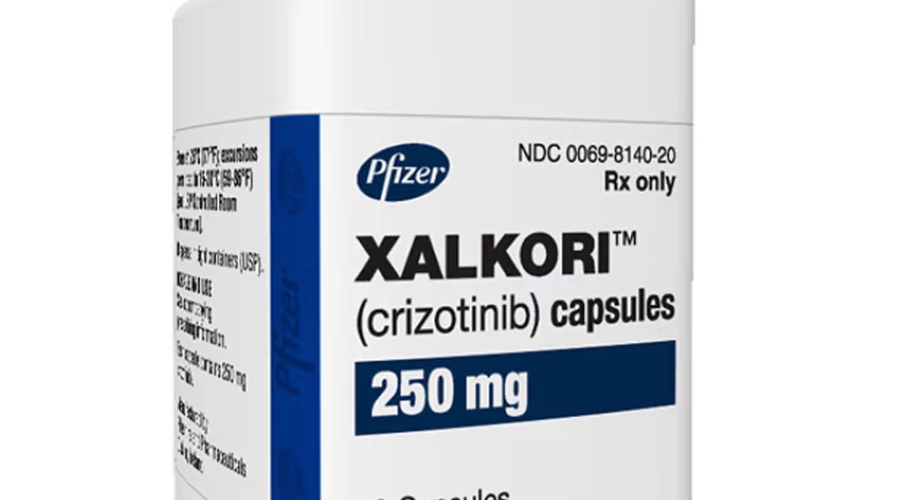FDA clears Xalkori for inflammatory myofibroblastic tumours

Pfizer's tyrosine kinase inhibitor Xalkori has picked up a fourth approval from the FDA, adding a new use in the treatment of a rare form of benign tumour that typically affects children and young adults.
Xalkori (crizotinib) has been cleared for inflammatory myofibroblastic tumours (IMT), which appear in organs like the lung, stomach, bladder or liver. While they are not cancerous and don't tend to spread, local growth within the organs can cause problems.
The FDA said that Pfizer's drug can be used in adults and children aged one or over with IMTs that carry a mutation in the ALK gene that cannot be removed surgically and have progressed despite prior therapies.
First introduced more than a decade ago, Xalkori is already approved to treat metastatic non-small cell lung cancer (NSCLC) in patients whose tumours are positive for ALK or ROS1 mutations, as well as for ALK-positive anaplastic large cell lymphoma in children and young adults, and brought in a little under $500 million in sales for Pfizer last year.
The new indication in IMTs isn't expected to drive a big increase in sales as the condition is so rare – diagnosed in just 150 to 200 people in the US every year. Treatment is generally with surgery, chemotherapy, or in some cases targeted therapy if a specific mutation in the tumour is identified.
The FDA approval was based on results from two multicentre, open-label trials – ADVL0912 and A8081013 – that included 14 children and seven adults, respectively with unresectable, recurrent, or refractory ALK-positive IMT.
Objective responses – i.e. the reduction of the tumour volume or stabilisation as assessed by an independent review committee – were achieved in 12 of the 14 paediatric patients and five of the seven adult patients.
Last year, Pfizer introduced an outcomes-based warranty programme for Xalkori that offers a refund on the cost of the drug if a patient does not see a benefit from treatment.
The scheme means patients can submit a claims form to have their out-of-pocket costs refunded if Xalkori has been discontinued for clinical reasons within the first three months of use.













